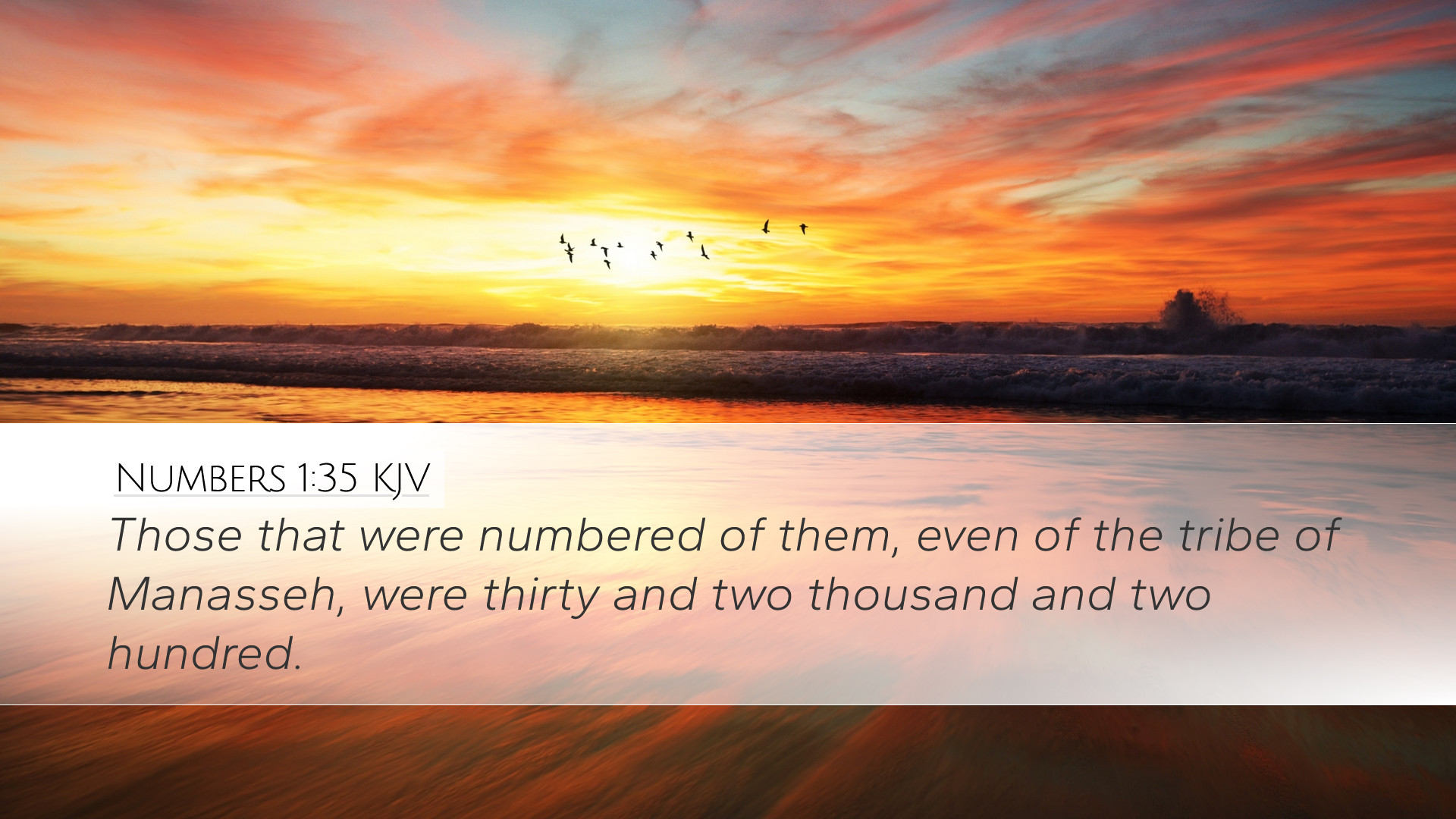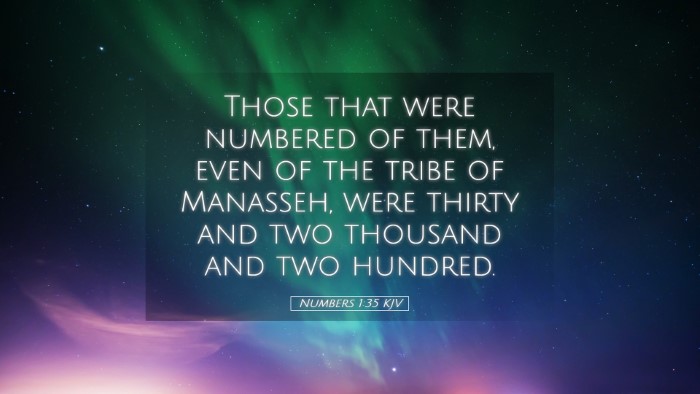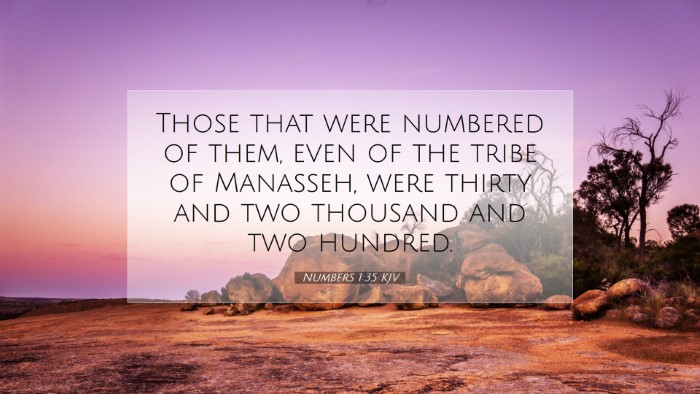Commentary on Numbers 1:35
The verse in Numbers 1:35 reads: "Those that were numbered of them, even of the tribe of Manasseh, were thirty-two thousand and two hundred." This passage provides important insights into the organization of the Israelite camp and the significance of tribal distinctions.
Contextual Overview
This verse is part of the broader context in which Moses received instructions from God concerning the numbering of the tribes of Israel. The numbering was not only a census but also a means of organization for military and social purposes as the Israelites prepared to enter the Promised Land.
Significance of the Tribe of Manasseh
The tribe of Manasseh, one of Joseph’s sons, had a significant role in Israelite history. The numbers given indicate the strength of the tribe during this specific period. The recorded count serves to showcase God’s faithfulness in fulfilling promises made to the descendants of Abraham, Isaac, and Jacob.
Insights from Commentaries
-
Matthew Henry:
Henry emphasizes the importance of understanding God’s providence in the enumeration of the tribes. The fact that the tribe of Manasseh had a specific number, 32,200, reflects both divine order and the blessings of God upon the families of Israel. Moreover, he notes that the tribe's inclusion exemplifies God’s care for all of His people, regardless of their size or stature.
-
Albert Barnes:
Barnes indicates that the number of Manasseh is a direct testimony to the growth and survival of the tribe, having emerged from a period of adversity. He points out that each census serves as a reminder of reliance on God’s power and provision. Further, the distinct number highlights the role of the tribe of Manasseh, particularly in the context of their inheritance and military duties as they prepared for conquest.
-
Adam Clarke:
Clarke provides historical context regarding the origins of the Manasseh tribe, tracing its lineage back to Jacob’s blessing. He notes that the size of the tribe indicates not only its capacity for warfare but also its potential for leadership and influence among the tribes of Israel. Clarke highlights how the tribal census is an integral aspect of what it means to be God's chosen people, each with specific roles within the larger community.
Theological Implications
The enumeration of the tribes as recorded in Numbers 1:35 brings forth important theological themes. Firstly, it underscores the theme of identity among the Israelites. They were not simply a mass of people but a nation comprised of distinct tribes, each possessing its own characteristics and divine purpose.
God's Sovereignty and Order
The meticulous nature of these records reflects God’s sovereignty over His people. Each tribe had its specific number, which signifies God’s intimate knowledge of His people and His providential hand guiding them. This organization is essential not just for military readiness but also for fostering a sense of belonging and purpose among the Israelites.
Faithfulness to Promises
The physical presence of a significant number of descendants from Manasseh also illustrates the faithfulness of God in keeping His promises to multiply His people. This is a recurring theme throughout scripture, showcasing God’s commitment to His covenant people.
Conclusion
Numbers 1:35 serves as a vital reminder for pastors, students, theologians, and Bible scholars of the importance of understanding the divine orchestration in our lives. Just as God meticulously enumerated the tribes of Israel, He is equally attentive to His covenant with His people today. As we reflect on these truths, may we be encouraged to recognize our unique identities within God’s family and trust in His sovereign plan.


